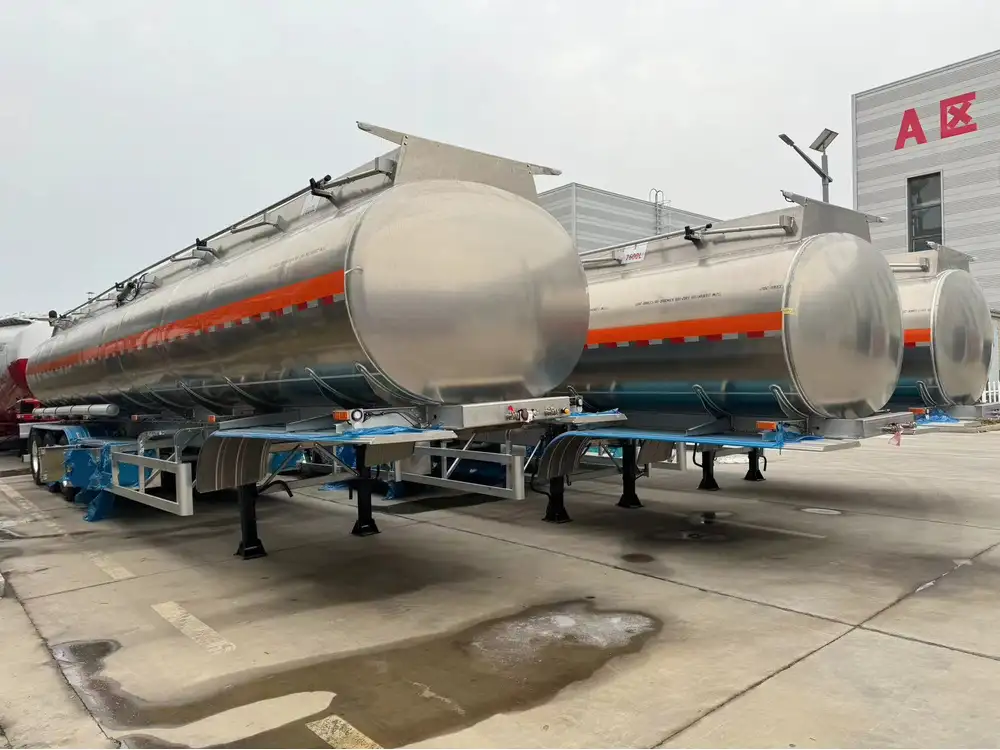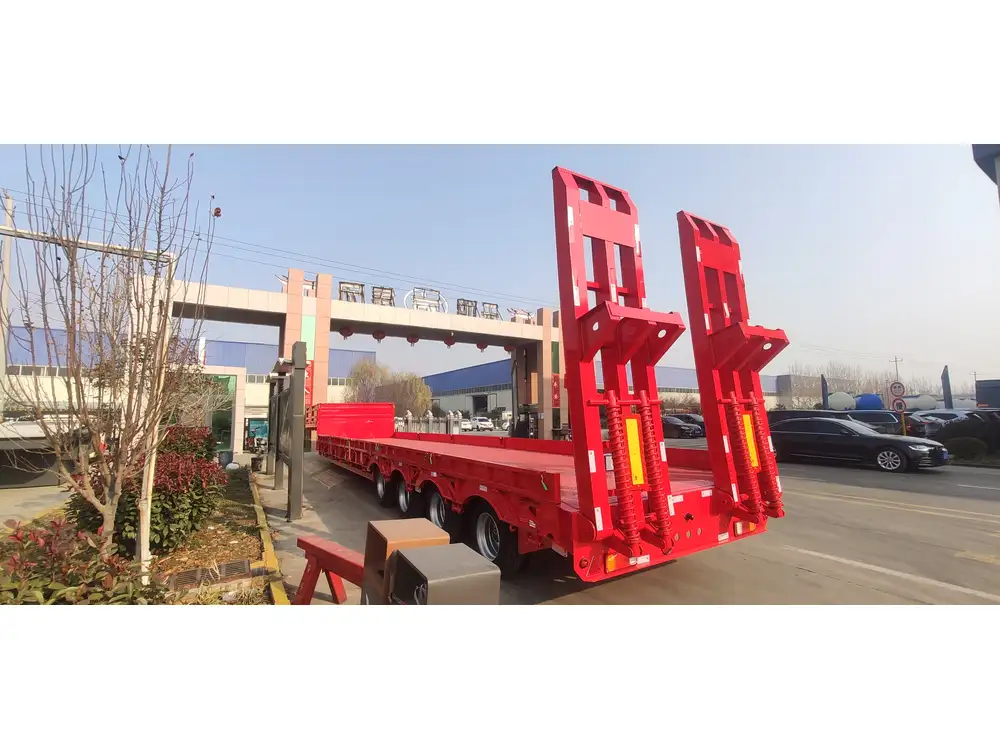Dump trailers are essential equipment in the construction, landscaping, and agricultural industries, providing an efficient and effective means of transporting bulk materials. This article offers an in-depth exploration of the various factors that contribute to the weight of dump trailers, how to choose the right one for your needs, and the implications of weight in terms of performance and regulatory compliance.
What is a Dump Trailer?
A dump trailer, as defined, is a heavy-duty trailer designed for the transportation and quick unloading of materials. They feature a hinged end that allows the material transported to be dumped or unloaded at the destination quickly and efficiently. This functionality makes them an indispensable tool for contractors and landscapers.
Factors Affecting the Weight of Dump Trailers
The weight of a dump trailer varies significantly, influenced by several key factors:

1. Material of Construction
The material used in the construction of a dump trailer significantly impacts its overall weight. Common materials include:
| Material Type | Weight Implications |
|---|---|
| Steel | Offers high durability; heavier than alternatives |
| Aluminum | Lightweight; reduces overall trailer weight |
| Composite | A blend that offers durability while being lighter |
2. Size and Capacity
Dump trailers come in various sizes, typically ranging from 4 to 12 feet in length. The size directly correlates with capacity. For example:
- A 4-foot trailer may weigh around 1,500 lbs.
- A 6-foot trailer might weigh approximately 2,200 lbs.
- A 12-foot trailer could weigh around 4,500 lbs or more.
Larger trailers, while providing increased payload capacity, also contribute additional weight to the trailer itself.
3. Design and Features
The design intricacies including, but not limited to, the type of axle, the braking system, and the hydraulic components play a substantial role in the weight:
- Single axle vs. Tandem axle: A tandem axle design allows for greater weight distribution and enhanced stability but increases overall trailer weight.
- Hydraulic system: The inclusion of a hydraulic lifting system for dumping will also add weight.

4. Payload
The payload capacity of a dump trailer is crucial in determining its total weight. Payload capacities generally range from 2,000 lbs to 14,000 lbs, depending on the trailer’s design and construction materials.
5. Additional Equipment and Accessories
Dump trailers can be furnished with various features that may add to their overall weight. Common additions include:
- Toolboxes
- Ramps
- Expanded sides
- Tarps for securing loads
These accessories can increase the trailer’s weight while enhancing its functionality.
How Heavy is a Dump Trailer? A Breakdown of Average Weights
To provide a clearer understanding of the weight involved, it’s beneficial to present average weights by size and type:
| Trailer Size (ft) | Average Weight (lbs) | Typical Payload Capacity (lbs) | Total Weight with Maximum Load (lbs) |
|---|---|---|---|
| 6 | 2,200 | 6,000 | 8,200 |
| 8 | 3,200 | 8,000 | 11,200 |
| 10 | 3,800 | 10,000 | 13,800 |
| 12 | 4,300 | 14,000 | 18,300 |

Regulatory Considerations in Dump Trailer Weight
Understanding the weight of dump trailers is not only a matter of performance but also compliance with legal regulations. The weight affects the overall gross vehicle weight rating (GVWR), which must not exceed specific limits set by road safety authorities.
1. Road Classifications
Different road types have varied weight restrictions. Knowing the type of highway or road will inform the cargo capacity allowances and restrict the maximum permissible weight for safe operation.
2. Towing Vehicle Compatibility
The towing vehicle itself has a maximum towing capacity, which must account for the trailer’s weight plus the payload. This ensures safety on the roads and adherence to local towing laws.

Choosing the Right Dump Trailer for Your Needs
When determining the appropriate dump trailer for your specific requirements, consider the following aspects:
1. Purpose of Use
Consider the primary tasks you’ll be using the trailer for—if it’s mainly for hauling dirt, a lightweight aluminum model might suffice. For more robust materials like gravel or debris, opt for a heavier steel model with higher capacity.
2. Towing Vehicle Specifications
Ensure that the dump trailer’s weight, when fully loaded, does not exceed the towing capabilities of your vehicle. Check both the truck’s tow capacity and hitch ratings to ensure compatibility.

3. Loading and Unloading Mechanisms
Evaluate the need for hydraulic or manual unloading features, which can influence both the weight and overall functionality of the trailer.
4. Storage and Maneuverability
Consider where you’ll store the trailer when not in use. Larger trailers may pose storage challenges and could require more space for maneuvering during loading and unloading operations.
5. Budget Constraints
Dump trailers are available at various price points. Weigh your options and consider trade-offs between higher weight capacity, durability, and overall cost.

Frequently Asked Questions (FAQs)
1. What is the maximum weight a dump trailer can carry?
This varies based on the specific model and design. Generally, capacities range from 2,000 lbs to 14,000 lbs. Always refer to the manufacturer’s specifications.
2. How do I calculate the total weight of a fully loaded dump trailer?
To calculate the total weight, sum the dump trailer’s empty weight and the weight of the load. For example, a 3,800 lbs trailer loaded with 10,000 lbs results in a total weight of 13,800 lbs.

3. Do all states have the same weight regulations for trucks and trailers?
No, weight regulations may vary significantly from state to state. It’s important to consult local regulations to ensure compliance in your area.
4. What are the legal penalties for exceeding weight limits?
Exceeding the legal weight limits can result in hefty fines, stricter regulations, and could lead to traffic citations that affect your driving record.
Conclusion
In summary, understanding the weight of dump trailers is crucial for ensuring compliance, performance, and safety. By recognizing the various factors that affect trailer weight, from construction materials and design to payload capacity and regulatory requirements, one can make informed decisions that optimize their operations. For those in construction, landscaping, or agriculture, selecting the appropriate dump trailer ensures not only efficiency but also safety and legal compliance on the roads.
Investing in a dump trailer tailored to your specific operational needs, understanding its weight dynamics, and adhering to local regulations will streamline your workflow and enhance productivity. Whether you’re a seasoned professional or a newcomer in the field, knowledge of trailer weights and their specifications is a key component of successful material transportation.



